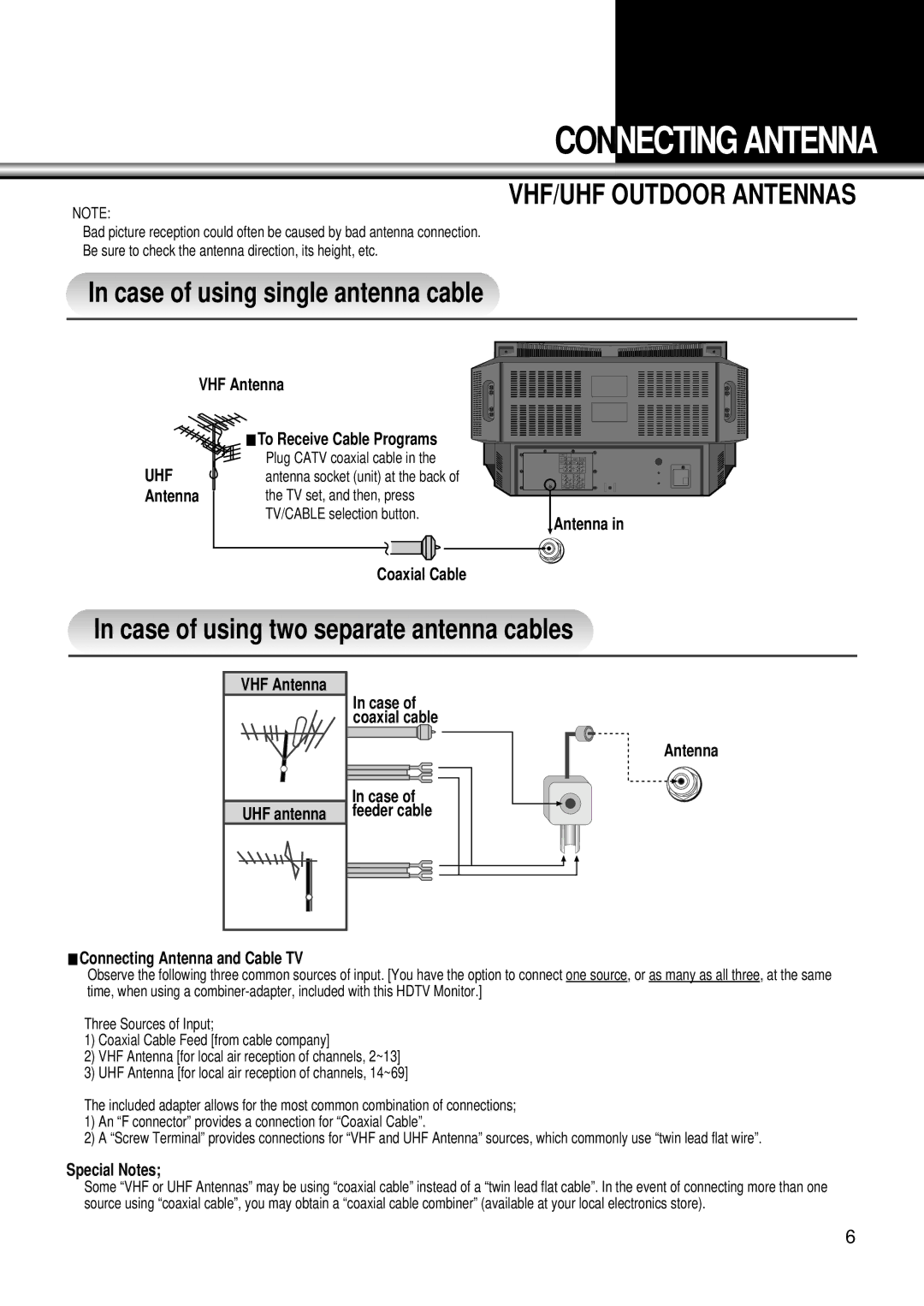
CONNECTING ANTENNA
VHF/UHF OUTDOOR ANTENNAS
NOTE:
Bad picture reception could often be caused by bad antenna connection.
Be sure to check the antenna direction, its height, etc.
In case of using single antenna cable
VHF Antenna |
| |
| LTo Receive Cable Programs |
|
UHF | Plug CATV coaxial cable in the |
|
antenna socket (unit) at the back of |
| |
Antenna | the TV set, and then, press |
|
| TV/CABLE selection button. | Antenna in |
|
| |
Coaxial Cable
In case of using two separate antenna cables
VHF Antenna |
UHF antenna |
In case of coaxial cable
In case of feeder cable
Antenna
LConnecting Antenna and Cable TV
Observe the following three common sources of input. [You have the option to connect one source, or as many as all three, at the same time, when using a
Three Sources of Input;
1)Coaxial Cable Feed [from cable company]
2)VHF Antenna [for local air reception of channels, 2~13]
3)UHF Antenna [for local air reception of channels, 14~69]
The included adapter allows for the most common combination of connections;
1)An “F connector” provides a connection for “Coaxial Cable”.
2)A “Screw Terminal” provides connections for “VHF and UHF Antenna” sources, which commonly use “twin lead flat wire”.
Special Notes;
Some “VHF or UHF Antennas” may be using “coaxial cable” instead of a “twin lead flat cable”. In the event of connecting more than one source using “coaxial cable”, you may obtain a “coaxial cable combiner” (available at your local electronics store).
6
